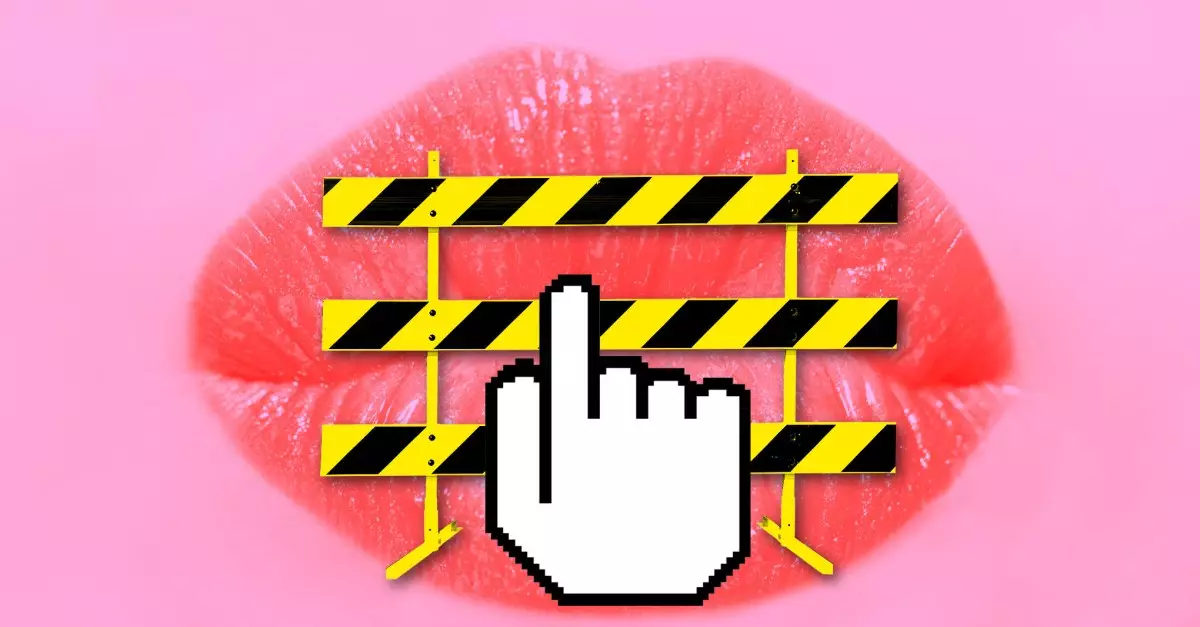In recent months, the gaming industry has witnessed a troubling trend: platforms are capitulating to the demands of payment providers, often at the expense of creative expression and marketplace diversity. From Valve to Tumblr, history has shown that the influence of credit card companies and payment processors can significantly restrict content freedom. Now, the indie-centric marketplace Itch.io finds itself caught in the crossfire, making hasty decisions that limit the scope of available content. This cascade of compliance-driven closures underscores a disturbing shift in the power balance—where financial considerations and third-party regulations take precedence over community norms, artistic liberty, and consumer choice.
What makes these developments particularly disconcerting is the method and pace at which they are executed. The abrupt removal of adult and NSFW content from Itch.io without prior consultation exemplifies a broader pattern of opaque decision-making driven by external pressures. Such sudden moves threaten the platform’s core mission of fostering indie creativity and open expression. These actions do not merely reflect compliance; they reveal a prioritization of reputation management and risk mitigation over supporting diverse voices. As a result, the fabric of the creative ecosystem could be forever altered, leaving developers and consumers uncertain of what content is safe, permissible, or even accessible.
The Hidden Costs of ‘Compliance’: Censorship and User Alienation
The necessity to align with payment processors’ policies often results in content censorship—an erosion of the artistic boundaries that define niche sectors like adult games or provocative visual novels. While platform owners argue that such measures are meant to protect users and ensure continued operation, the reality is more complex. These restrictions often lead to the silent removal of popular titles, leaving creators blindsided and customers feeling betrayed. The lack of clear guidelines exacerbates this sense of uncertainty; creators are left to navigate a labyrinth of unclear rules and ambiguous terms, risking their livelihoods over bureaucratic gray areas.
Moreover, these decisions carry the risk of alienating the very communities that support indie developers. Platforms like Itch.io and Steam have long championed the notion of an open marketplace where innovation and controversial topics can thrive. By bowing to external pressures, they risk emulating the censorship pragmatism seen in larger, corporate-controlled platforms like Tumblr, which banned adult content after succumbing to credit card company restrictions. Such moves, while seemingly minor or pragmatic, threaten to turn once vibrant creative hubs into sanitized, risk-averse environments. For many users and creators, this feels like a betrayal, fueling disillusionment and driving audiences elsewhere.
Power Dynamics and the Future of Digital Content
The underlying issue at play is the unsettling shift of authority—financial institutions now hold decisive power over what content can exist in digital spaces. This isn’t just about payment processing; it speaks directly to the symbiotic relationship between industry giants, monetization platforms, and content creators. When platforms like Itch.io and Steam prioritize compliance, they inadvertently embed the interests of payment processors into platform policies, fundamentally undermining the principles of free expression and open markets.
The implications extend beyond individual platforms. Once the precedent is set—content restrictions justified as a means to maintain financial viability—others are likely to follow. This could subtly transform the landscape of digital art and gaming into a domain increasingly dictated by profit-oriented gatekeepers rather than community standards or artistic merit. Future generations of developers may find themselves limited not by their creativity but by the convoluted demands of financial gatekeepers that are detached from the cultures they regulate.
As community trust wanes and alternative platforms emerge, the question remains: will the industry resist this tide, or will it become another censored frontier where content is curated primarily to appease external financial powers? The direction the marketplace takes will determine whether it remains a space for bold, unrestrained creativity or devolves into a sanitized environment dictated by corporate and financial interests. The stakes are high, and the outcome will shape the cultural landscape of gaming and digital art for years to come.

